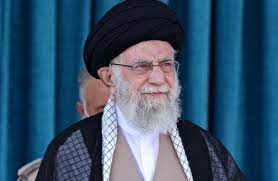
In the midst of escalating tensions between Iran and Israel, Kamal Kharrazi, an adviser to Iran’s Supreme Leader Ayatollah Ali Khamenei, has raised concerns about Iran’s nuclear ambitions. Kharrazi hinted at a potential shift in Iran’s nuclear doctrine if the country perceives its existence to be under threat by Israel.
“We have no decision to build a nuclear bomb, but should Iran’s existence be threatened, there will be no choice but to change our military doctrine,” Kharrazi stated, alluding to the possibility of altering Iran’s stance on nuclear weapons development.
The recent escalation between Iran and Israel saw Iran launching explosive drones and missiles targeting Israeli territory in response to the bombing of Iran’s embassy in Syria’s capital, Damascus, earlier in April. This exchange of hostilities has heightened concerns about the stability of the region and the potential for further conflict.
Despite Ayatollah Khamenei’s previous fatwa against nuclear weapons development, there have been indications of a potential reassessment of Iran’s nuclear posture. In 2021, Iran’s then-intelligence minister hinted at the possibility of changes in Iran’s deterrence strategy in response to external pressures, particularly from Western nations and Israel.
“In the case of an attack on our nuclear facilities by the Zionist regime (Israel), our deterrence will change,” Kharrazi added, underscoring the seriousness of Iran’s response to perceived threats.
Efforts to engage with the International Atomic Energy Agency (IAEA) have faced challenges, with mixed results reported. While discussions between Iranian nuclear officials and IAEA representatives have been described as positive, tangible progress on key issues remains elusive.
Rafael Grossi, the head of the IAEA, expressed frustration over Iran’s alleged lack of cooperation, emphasizing the urgency for concrete measures to address outstanding concerns regarding Iran’s nuclear activities. Despite Iran’s commitments to assist in investigations and reinstall monitoring equipment, progress has been slow, leading to a stalemate in discussions.
“The present state is completely unsatisfactory for me. We are almost at an impasse, and this needs to be changed,” Grossi remarked, highlighting the critical need for cooperation from Iran.
During discussions, both sides acknowledged a 2023 agreement as a potential framework for cooperation, but implementation has been hindered. Concerns were also raised about external interference, particularly from Israel, which Iran perceives as a hostile actor in the region.
Sources By Agencies


